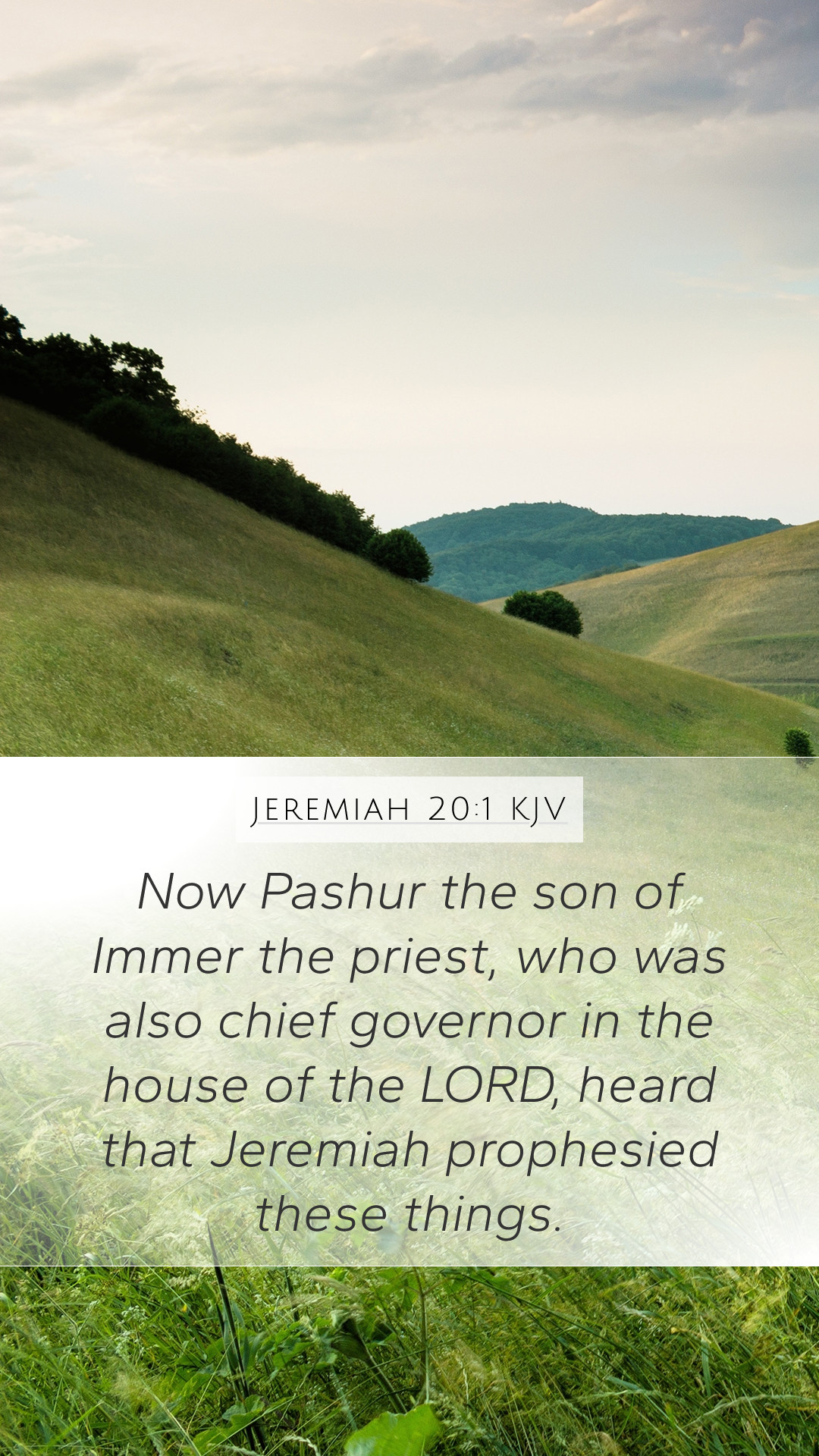Understanding Jeremiah 20:1 - Bible Verse Commentary
Jeremiah 20:1: "Now Pashhur the son of Immer the priest, who was also chief governor in the house of the LORD, heard that Jeremiah prophesied these things."
Context and Historical Background
In this passage, we see the prophet Jeremiah facing opposition and persecution due to his prophetic messages from God. The context reveals a time of declining morality and spiritual decay within Israel, where Jeremiah's warnings are met with hostility.
According to Matthew Henry, Jeremiah's calling to be a prophet was marked by suffering and rejection, especially from those who should have known better, like the priests and governors. Thus, Pashhur's reaction is indicative of the broader response of the people, particularly the leaders, to God's message.
Verse Analysis and Interpretation
- Pashhur's Role: Pashhur, being the chief governor and a priest, symbolizes the religious authority that opposes Jeremiah. Albert Barnes explains that this illustrates the conflict between true prophecy and false religious leadership.
- Jeremiah’s Prophesying: The mention of Jeremiah's prophecies emphasizes his role as a true prophet. Adam Clarke notes that God's word through Jeremiah was often a source of discomfort for those in power, thus leading to conflicts.
- Opposition from Authority: The verse highlights the theme of persecution faced by prophets, which is further examined in more passages. Matthew Henry suggests that this opposition is a recurring motif in prophetic literature, reflecting the struggles between divine truth and human authority.
Significant Themes
Jeremiah faces not just personal trials but represents the larger struggle between God's will and the will of men. This is crucial for Bible study insights focusing on themes of prophetic integrity, societal judgment, and divine sovereignty.
- Prophetic Integrity: The struggle Jeremiah faces underscores the importance of remaining faithful to God’s call amidst adversity.
- Divine Judgment: The prophecies Jeremiah delivers often contain warnings of judgment that stem from Israel's unfaithfulness.
- Rejection of God’s Message: This verse illustrates how God's messages are often rejected by those in righteous positions, demonstrating the need for a heart aligned with God.
Application for Modern Readers
For those seeking Bible study resources or Bible study guides, Jeremiah 20:1 serves as a vital lesson on the cost of discipleship and the importance of steadfastness in faith. Here are ways you can apply this passage to daily life:
- Reflect on how you respond to discomfort when sharing your faith.
- Consider your own role in communicating truth in a world often hostile to it.
- Engage in prayer for boldness and strength to uphold God’s truth amidst challenges.
Related Bible Cross References
For further Bible verse interpretations, consider the following related passages:
- Luke 6:26 - A warning about seeking the approval of men.
- 2 Timothy 3:12 - The assurance that those who live godly lives in Christ will face persecution.
- Ezekiel 2:3-7 - God’s call to Ezekiel and the challenge of prophesying to a rebellious house.
Conclusion
Jeremiah 20:1 serves as a profound reminder of the struggles faced by prophets and the complexities of delivering God's message in times of opposition. It challenges readers to grow in their Bible verse understanding and equips them with insights for navigating their faith journeys. This verse encapsulates the essence of what it means to stand firm in one’s beliefs while navigating societal pressures and resistance.


